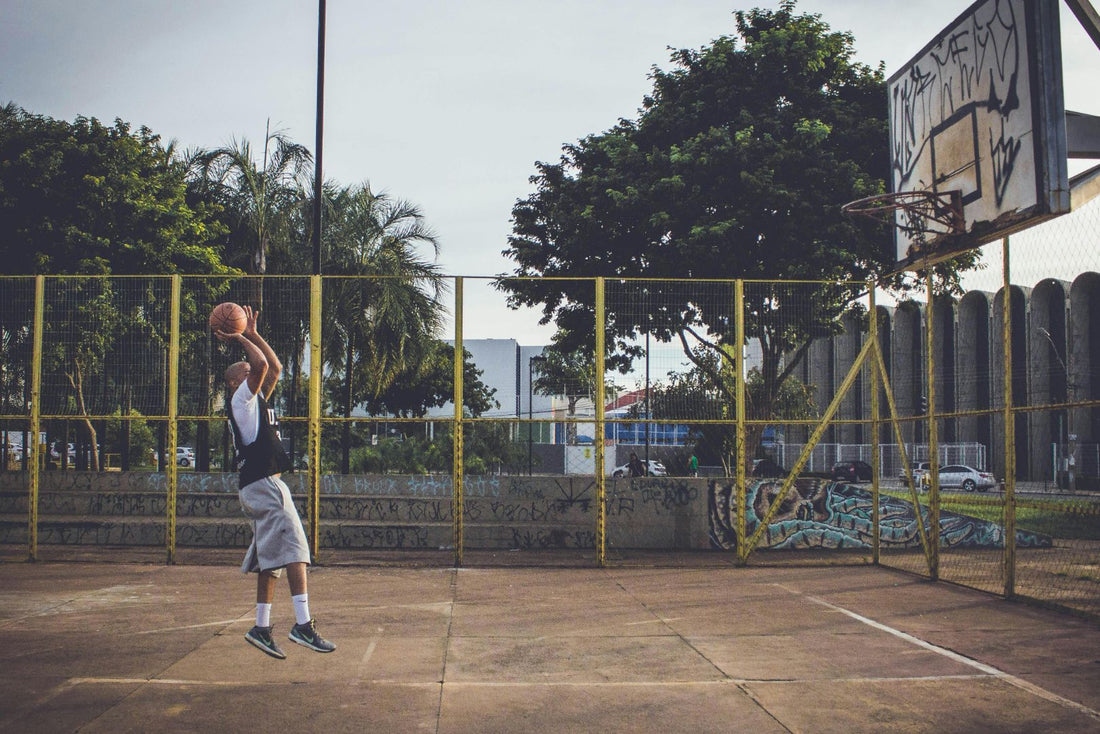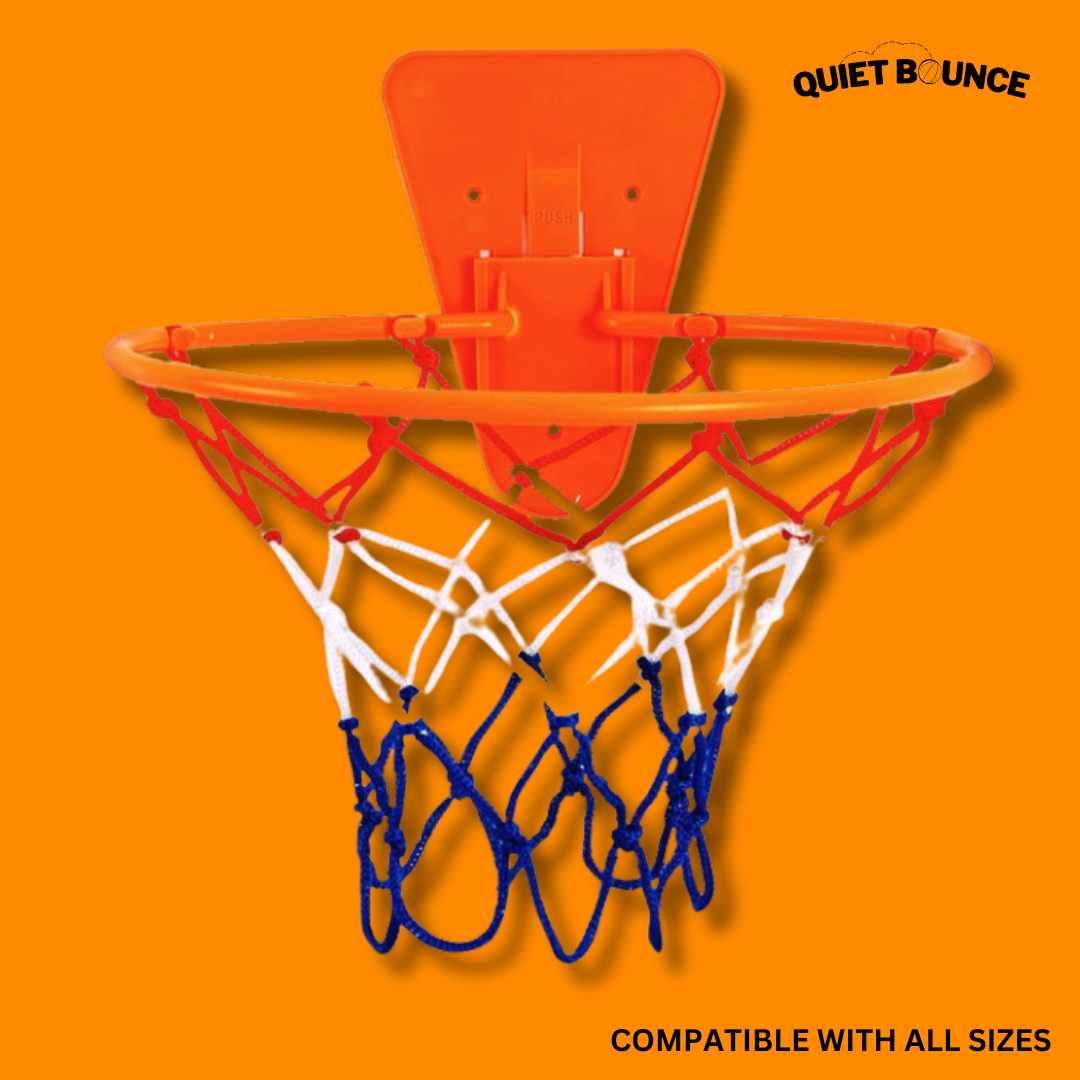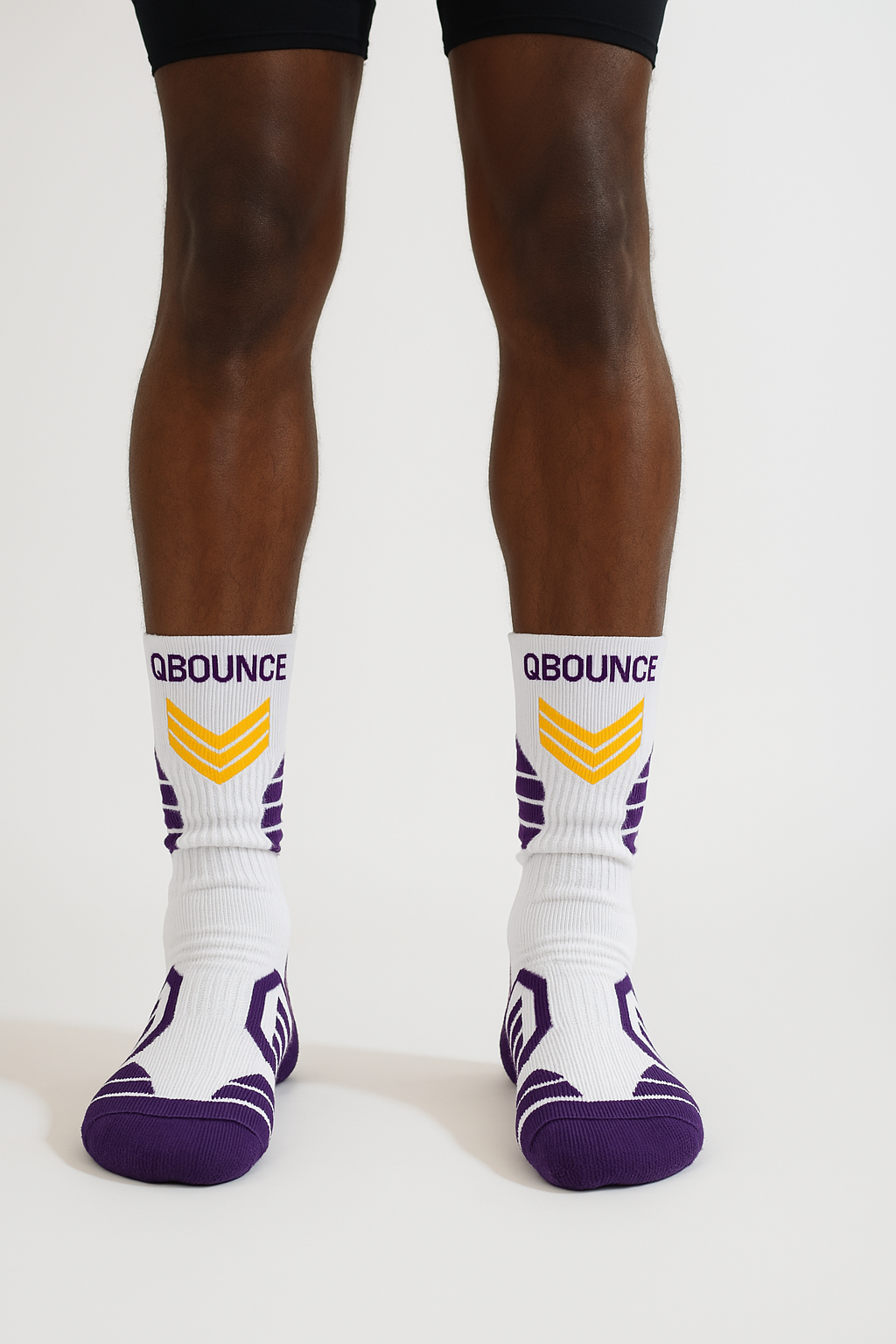
What Makes a Great Basketball Player?
Share
While some basketball players possess a natural talent for the game, mastery of specific elements sets a truly great basketball player apart from the rest. From a high basketball intelligence to the ability to inspire their fellow team members, we’ve rounded up the qualities that all the best players seem to have in common. This way, you, too, can strive for greatness.
Of course, you can’t overlook the importance of honing your physical skills. The best players eat, sleep, and breathe all things basketball, so be prepared to commit hard if you want to breathe the same rarefied air. Practice at school with your teammates, at the gym with your friends on the weekends, and practice at home even if everyone is sleeping (this is why quiet basketballs were invented, right?).
Let’s look deeper at what makes a basketball player not just pretty good but genuinely great.
Strong Foundational Basketball Skills
The foundation of any great basketball player lies in their on-court abilities. And while many may be famous for a particular strength, the best is well-rounded and versatile. Here are the top skills you’ll want to improve as you chase legendary status:
- Shooting: A great shooter possesses accuracy, consistency, and a variety of shooting techniques, such as jump shots, layups, and three-pointers.
- Dribbling: A skilled dribbler has excellent ball control, quick hands, and the ability to change direction and speed effortlessly.
- Passing: A great passer has the vision to spot open teammates, the accuracy to deliver the ball precisely, and the ability to execute various types of passes, including bounce passes, chest passes, and alley-oops.
- Rebounding: A strong rebounder has excellent timing, anticipation, and the physicality to outmuscle opponents for the ball.
- Defense: Solid defensive skills include staying in front of your opponent, anticipating their moves, and contesting shots effectively.
- Agility & speed: Quick lateral movement, explosive acceleration, and the ability to change direction swiftly allow players to navigate through defenses, beat opponents off the dribble, and recover quickly on defense.
- Footwork: Good footwork enhances a player's balance and ability to execute various moves, such as pivoting, fakes, and posts.
- Stamina & endurance: Great players can maintain their energy and performance throughout the game, allowing them to impact in crucial moments and perform consistently.
A High Basketball IQ
Basketball IQ refers to a player's understanding of the game, ability to make intelligent decisions, and court awareness. It goes beyond mere physical skills and involves mental understanding and strategic thinking.
This know-how encompasses an excellent understanding of fundamental offensive and defensive concepts, spatial awareness, and time and score management. A player with a high basketball IQ can analyze their opponent’s weaknesses and adjust their game accordingly.
They can also effectively communicate this vital information to their team, guiding their teammates in decisions that will benefit the team. Their understanding of the game allows them to be vocal leaders, directing their teammates and inspiring them to perform at their best.
Mental Toughness
Mental toughness refers to a player's ability to remain focused, resilient, and composed under pressure and adversity. A mentally tough player holds themselves to high standards, isn’t afraid to tackle challenges, and can do so confidently.
This kind of player is good at regulating their emotions, staying calm and composed in tense situations, and never letting anger or anxiety negatively impact their performance. They also come to practice, and games have done just as much mental preparation as they have physical preparation.
A mentally tough player is determined and doesn’t fear sacrifice and dedication. They have an exceptional work ethic and are willing to put in the extra hours of basketball practice at home or with the team. They always go above and beyond what is expected, persevering and remaining adaptable even in the most challenging situations.
Desire to Improve
The desire to continuously improve is another quality that separates great basketball players from the rest. It is the inner drive and hunger they feel to strive for excellence and push themselves beyond their limits constantly. Here are some of the ways you can embrace a desire to improve:
- Have a growth mindset: View your failures as learning opportunities and be open to feedback and constructive criticism. Constantly seek ways to improve and never settle for mediocrity.
- Fuel your self-motivation: The desire to get better comes from within. Great players are self-motivated and have an intrinsic drive to succeed. They constantly challenge their limits and push themselves to reach new heights.
- Embrace feedback: Be receptive to feedback from coaches, teammates, and opponents, using it as valuable insights to refine your skills and make necessary adjustments.
- Never stop learning: The desire to get better goes hand in hand with a hunger for knowledge and continuous learning. Great players watch game footage, study opponents' strategies, and constantly evolve their skills.
- Set goals: These provide direction and purpose, serving as a driving force to push you through challenges and setbacks. Have a clear vision of what you want to accomplish, and then work diligently toward those goals.
- Practice accountability: Own your actions, choices, and progress. Don’t make excuses or blame others; take responsibility for your performance and actively seek ways to improve.
Passion
Think about your favorite basketball player. Odds are, you can tell when they’re enjoying themselves. This is because the most outstanding players still find basketball to be fun and challenging in an enjoyable way, from practicing and training to competing in games. This intense love and dedication for the game fuels their success.
Passionate players are willing to put in the necessary time, effort, and sacrifice to pursue their basketball dreams. They prioritize basketball in their lives and make it a central focus, committing to continuous skill development.
However, their commitment extends beyond their personal goals, as they strive to contribute to the success and uplift the entire team. They believe in cooperation and often inspire and motivate others to adopt these attitudes. They lead by example, encouraging others directly or indirectly always to give their best effort.
Competitiveness
Competitive players have an intense work ethic and constantly seek ways to gain an edge over their opponents through hard work and dedication. They aren’t content with mediocrity but always strive to be among the best. They set high goals and are driven to surpass them.
Great players thrive in high-pressure situations and are determined to do whatever it takes to secure victory for their team. They constantly analyze their opponent's strengths and weaknesses, seeking ways to exploit and capitalize on weaknesses.
Competitive players know how to channel their competitive energy positively and productively. They use their competitiveness to fuel their performance, drive their teammates, and elevate the overall intensity on the court. They don’t let their competitive nature become a distraction but instead use it as a source of motivation and inspiration.
Coachability
Coachability refers to a player's willingness to listen, learn, and implement guidance from their coaches. If you want to become a great player, keeping your ego in check and having an open mind is essential. Here are some ways you can show your team that you’re coachable and a team player through and through:
- Be open to feedback: Understand that constructive criticism is necessary for growth and improvement. Actively seek input and be receptive to suggestions and corrections.
- Be willing to learn: Coachable players are eager to acquire new skills, techniques, and strategies. Approach every practice and training session with a continuous learning mindset — there’s always room for improvement.
- Have respect for authority: Demonstrate respect and trust in your coaches' expertise. Listen attentively, follow instructions, and execute the game plan as directed, knowing that your coaches have your best interests at heart.
- Have a positive attitude: Coachable players maintain a positive attitude, even in challenging situations. View setbacks as opportunities to learn and do your best to remain motivated despite obstacles.
Confidence
Think about your favorite player again. They probably ooze confidence, both on and off the court, don’t they? Confident players have a strong belief in their abilities. They trust their skills, their training, and their preparation. They have a positive self-image and carry themselves with an air of self-assurance. This allows them to perform at their best and take calculated risks on the court.
Confident players have an inner dialogue that reinforces their strengths, capabilities, and potential for success. Instead of dwelling on what-ifs or adverse outcomes, they replace self-doubt with affirming and empowering thoughts. This helps them maintain a confident mindset throughout an entire game, from start to finish, no matter the score. Players can confidently perform at their best, take risks, and significantly impact the basketball court.
Now that you know what some of the greatest basketball players have in common, it’s up to you to put these tips into practice (literally). Think about what drew you to the sport in the first place and why you continue to play today. Then, develop a vision for where you want the sport to take you and break this down into actionable steps you can take toward achievable goals.
Finally, practice, practice, practice to improve your skills and become the best basketball player you can be. Expand your repertoire of dribbling drills, shooting drills, footwork techniques, and more. If you can commit to putting in as much as you expect to receive from the game, you’ll always be proud of your contributions on the basketball court. Now, get out there!




